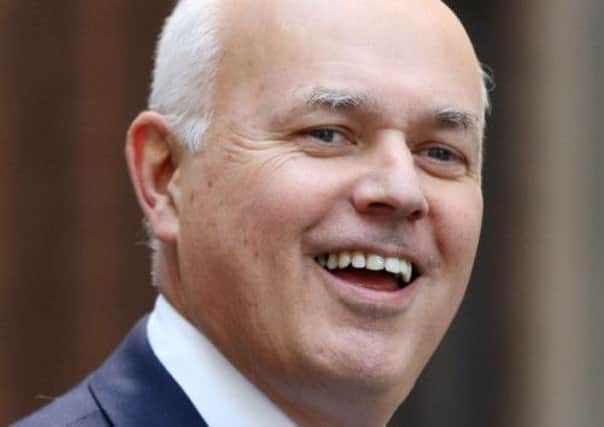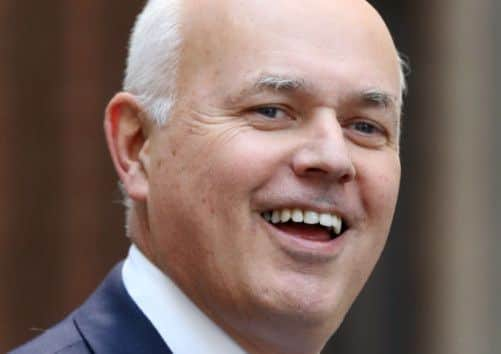Minister dismisses concern on welfare reforms


The Work and Pensions Secretary insisted problems highlighted in a damning report by the National Audit Office (NAO) were “historic” and he had already intervened to sort them out.
In fiery Commons exchanges, Mr Duncan Smith also branded Labour counterpart Liam Byrne “pathetic” for suggesting he should apologise for the state of the project.
Advertisement
Hide AdAdvertisement
Hide AdUniversal Credit is due to replace a bundle of means-tested benefits by 2017, with the department estimating it will save £38bn in administration, fraud and error costs by 2023. It is also designed to encourage people to take up work by ensuring they will always be better off having a job. But pilots have been scaled back and delayed, and a former Olympics executive was drafted in earlier this year to “reset” the programme.


The NAO criticised “weak management, ineffective control and poor governance” of the scheme, saying that of £303m spent on IT up to April, £34m had been written off and the systems still had “limited functionality”. It found the IT system could not identify potentially fraudulent claims, meaning manual checks were needed on claims and payments. “Such checks will not be feasible or adequate once the system is running nationally,” they added.
“Delays to the roll-out will reduce the expected benefits of reform and – if the department maintains a 2017 completion date – increase risks by requiring the rapid migration of a large volume of claimants.”
Mr Duncan Smith strongly defended the project he has championed, touring television and radio studios before facing questions from MPs. Following an independent review in early 2012, he said he changed the leadership of the project, bringing in Philip Langsdale then David Pitchford and now Olympics executive Howard Shiplee. “Every NAO recommendation that they made in the report has already been made,” Mr Duncan Smith said.